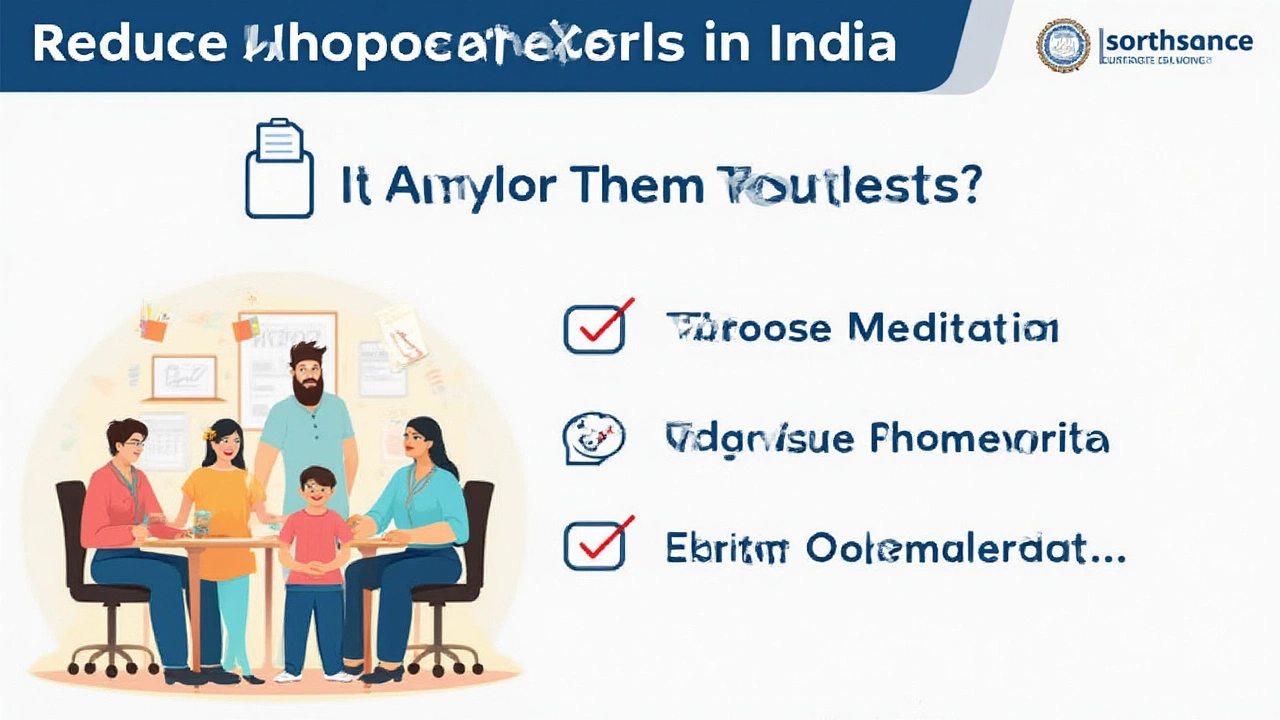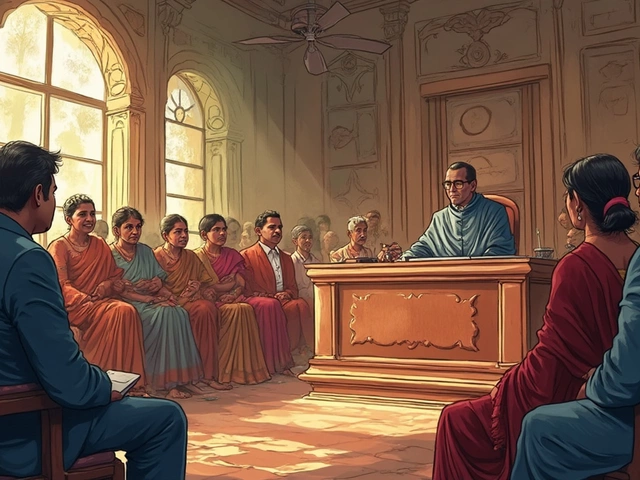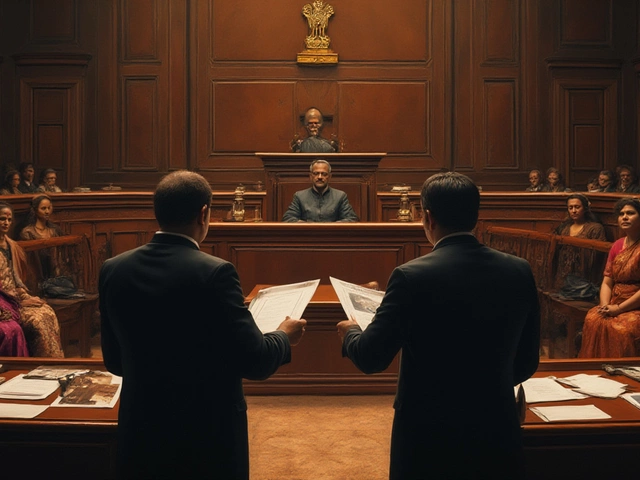You might think splitting up in Virginia is just about signing some papers and moving on, but the real bruiser comes when you talk about money. Ever heard that old joke, "Why is divorce so expensive? Because it’s worth it?" There’s a bit of dark truth brewed in there. Let’s dig past the clichés and actually lay out who pays for what, how much it could really set you back, and the wild variables that most people never see coming. Nobody ever said breaking up was cheap, but the why and how of divorce in Virginia will probably surprise you.
The Real Costs: Who Foots the Bill for Divorce in Virginia?
First off, there’s no flat price tag for divorce in Virginia. You won’t find it listed on Amazon. The actual costs are all over the map, and it’s not only about attorney fees. There’s filing fees, service fees, notarization, copies, even the random cost of parenting classes if you have kids. The straightforward basic filing fee is usually $86 at the courthouse. That sounds almost friendly until you realize you need to pay for serving papers too – that’s another $12 if through the sheriff, or a bit more if you need a private process server.
Now for attorney fees – this is where things really balloon. According to a 2024 state bar consumer guide, the average hourly rate for a divorce lawyer in Virginia is $315. Multiply that by hours spent on case reviews, emails, filings, and negotiations, and the bill gets heavy fast. In contested divorces, where people can’t agree on major issues, the average total attorney cost is about $14,500. An uncontested divorce (where everything’s agreed from the start) can sometimes be handled for under $1,000, maybe even lower if you go DIY and it truly is amicable.
Other costs roll in if you bring in experts, like guardians ad litem for contested custody ($500–$2,000), forensic accountants, or appraisers. If you own a home or business or there’s a pension to split, get ready for some sticker shock. Real talk: even if one person gets the "better deal" on assets, the process itself isn’t really about winning or losing—it’s about mitigating just how much everyone is going to end up paying.
But who pays? The default is simple: Each spouse pays their own way—meaning their own attorney and court costs. But don’t assume that’s how the judge sees it every time. If one spouse earns way more than the other, or if one person is clearly running up costs by fighting over little stuff, the court might order one spouse to cover some (or all) of the other’s fees. This is called an “award of attorney’s fees,” and it’s not super rare in Virginia courts.
The judge weighs things like income differences, fault (cheating generally isn’t enough, but things like hiding assets or dragging out court can swing it), and the reasonableness of each side’s behavior. So, acting in good faith can shield your wallet. If your spouse tries to game the system or blow up the process, judges are pretty open these days to shifting the bill their way.
Knowing who pays is just half the battle. A big tip? Be honest when discussing fees and costs with your attorney upfront. Most people drag their feet or try to hide assets, thinking it'll save them money. Usually, it’s the opposite: playing games leads to bigger fees and a judge who’s less likely to be sympathetic.

Ways to Lower the Cost: Tips and Strategies
Let’s get real about saving some of your cash. A lot of horror stories you’ve heard about divorce bills come from people who kept fighting out of pride—or dragged things through court. Here are practical tips from real Virginia legal experts (and people who’ve been through it):
- Settle out of court if you can. The best money-saving move: agree on as much as possible with your spouse before involving lawyers. Mediation is way cheaper than court, and a mediator can cost as little as $100–$250 per hour. Compared to a court fight, that’s a steal.
- Use flat-fee or limited-scope services. Some Virginia attorneys offer “unbundled” services—meaning you can hire them just to check documents or represent you during a specific hearing. This can slice legal bills down a lot.
- Stay organized. Bring all your financial records, correspondence, and documents to your first meeting. Wasting your attorney’s time tracking down stuff equals more billable hours. Keep a binder or shared digital folder—court staff love it and so do lawyers.
- Focus on what matters. Fighting tooth and nail over who gets the couch or old TV isn’t worth racking up thousands more in fees. Prioritize big ticket items—think property, custody, debts—and agree to walk away from things you won’t even care about in a year.
- Consider filing on your own. If you and your spouse agree on everything and don’t have tons of assets or complicated custody issues, check the Virginia Judicial System’s self-help online forms. You may only have to pay basic court fees and a small document prep cost.
- Beware of hidden costs. If you own property, you’ll need to record new deeds, and that costs $20–$50 per document. Changing your name, updating titles, or dividing retirement accounts can pile on more surprise costs down the line.
- Ask about fee waivers. If you honestly can’t afford court filing fees, you can request a waiver with a simple form (the “Petition for Proceeding in Civil Case Without Payment of Fees or Costs”). Judges can and do grant these pretty often for those who qualify.
If you think mediation is just for TV, Virginia’s own state statistics show that more than 80% of mediation cases in family court result in some form of settlement. That’s a lot of people avoiding trial, which is where the costs really explode. A table below compares average rates in Virginia between different divorce types:
| Divorce Type | Average Total Cost | Attorney Fees Included? | Time to Resolution |
|---|---|---|---|
| Uncontested (DIY or Flat-fee) | $500–$1,200 | Sometimes (low end) | 1–3 months |
| Mediation | $1,000–$4,000 | Sometimes (if attorneys consulted) | 2–4 months |
| Contested (Standard Attorney) | $12,000–$18,000 | Yes | 8–18 months |
| High Conflict/Custody Battles | $20,000–$40,000+ | Yes | 1–2+ years |
Bottom line: The less you fight, the less you pay—from attorneys, courts, and your anxious mind. Even a middle-of-the-road contested divorce can cost more than many people make in an entire year. Act like you have to pay the other person’s bill, and you’ll avoid mistakes that make judges angry.

Common Misconceptions and What the Law Really Says
Lots of folks assume the "breadwinner" always foots the bill for a divorce. That’s not actually baked into the laws. Virginia is what’s called an equitable distribution state—not community property. Splitting costs, like splitting assets, is not strictly 50/50. The court can and does use its discretion to order one spouse to pick up some or all of the legal tab, but there’s no guarantee. Most of the time, both parties are responsible for their own lawyer.
Another myth? That "fault"—like cheating or abandonment—means one person pays for everything. At best, bad behavior might get the judge to shift fees if the misconduct directly drove up legal bills or delayed the process. Virginia does allow fault divorces, and evidence of real mischief (think: hiding assets, refusing to follow orders, lying to the court) actually matters more than just personal drama.
Let’s talk about court orders. Sometimes, even if one spouse is ordered to pay the other's fees, payment isn’t immediate. It might be wrapped into the division of property, or paid out of proceeds from a house sale later. There’s also the rare situation where someone acts so badly during the case that the judge issues sanctions—forcing them to pay the other party’s attorney fees as a punishment point-blank. You have to really cross the line for this to happen, but it does show up in court records every year.
There’s a lot of confusion over what “alimony” (spousal support) covers. In Virginia, support awards don’t automatically include paying for attorney fees, unless specifically set out in the order. Same story with child support—it’s separate from paying for legal fees. Don’t just assume your ex will have to cover everything, or you might get caught out of pocket.
Maybe the biggest surprise? DIY isn’t always the cheapest route. Couples who try to handle everything and miss something critical might get their agreement rejected by the court, which means coming back and paying more. Worse, they can lose legal rights or mess up future finances for years.
If you want to play it smart, there’s a middle ground: see a lawyer for a consult up front. Many attorneys in Virginia offer free or cheap initial consultations (about half do, based on a 2024 Legal Services Survey). They’ll tell you if self-filing is realistic and which forms you really need. You can save thousands just by asking questions before paperwork is filed. That’s worth every penny if it means going through the process only once.
The divorce cost landscape in Virginia might not be fair, but it is pretty transparent if you know where to look. Go into it with your eyes open, be straight with your spouse and the courts, and skip the drama. Money doesn’t have to be the thing that hurts the most—just the thing you’re ready for.


